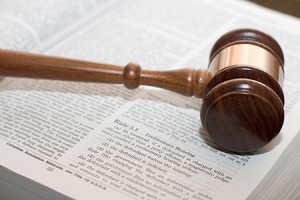Clients often ask how they should act and what they should wear when appearing in court. As a general rule your overall appearance and that of your defense counsel should always try to convey trustworthiness and credibility.
With regards to your actions in the courtroom, you should be prepared to testify and understand what the prosecution is going to question you about and what he must prove to meet his burden of proof. In addition to the obvious content of your testimony, you should understand that it is not only what you say but how you say it, including the tone of your voice, how quickly you speak and always maintaining eye contact. It is also a good idea to be aware of your conduct when sitting next to your attorney. Understand that someone will always be watching you therefore wild outbursts, eye rolling and hand gestures are not unacceptable. Instead practice sitting calmly with a pad of paper and a pen and focus on listening. Your attorney also needs to listen to be effective so do not interrupt him. Interrupting him during opposing counsel’s direct examination or cross examination could cause him to lose his focus and miss a critical response. You should remain silent while writing down your questions and inconsistencies in the witness testimony and wait until the other attorney is finished questioning the witness before you speak to your attorney.
With regard to courtroom dress, I always wear a suit so I recommend a suit for men and a suit or a longer skirt for women. At the very least men should wear a collared shirt, a sports coat, and slacks. Women should avoid wearing anything too provocative. Neither men nor women should ever wear t-shirts, hoodies, sneakers, sandals, flip flops, or jeans. Men and women should wear conservative dress shoes and women should avoid open toe foot wear. Men should be clean shaven and well groomed. While a professional appearance will not necessarily make a bad case good, a poor appearance will just give the judge or jury one more reason not to believe or respect you. Do not underestimate the power of nonverbal communication. Your appearance and that of your witnesses creates a positive or negative impression. Appearance must reinforce your attorney’s arguments. In most cases your attorney may present a mistaken identity theory (it wasn’t my client) and so your appearance should reinforce the argument that you couldn’t have committed this type of crime because you don’t fit the part. Proper appearance can reinforce good character but it can also imply good character when your attorney can’t talk about it. The law understands that appearance and nonverbal communication matter. In their final instructions to a jury prior to their deliberations, judges tell jurors that they are permitted to use a person’s nonverbal responses and cues to determine credibility.
The bottom line is that appearance matters and preparation is critical, so be prepared and give the judge and jury every reason to like you. If you are charged with a crime contact Gregory J. Spadea online or at 610-621-0604 of Spadea & Associates, LLC in Folsom, Pennsylvania.











